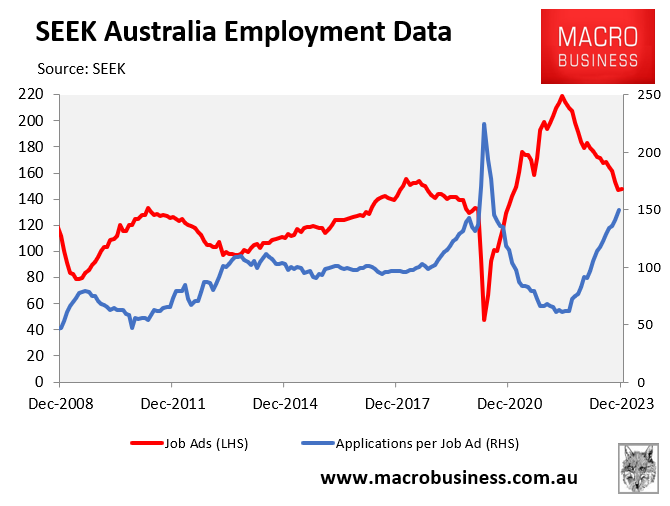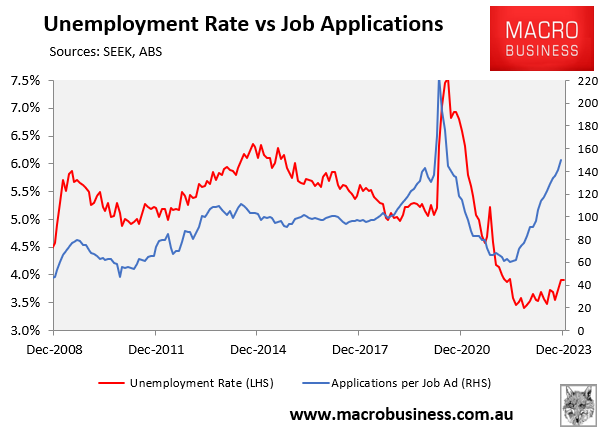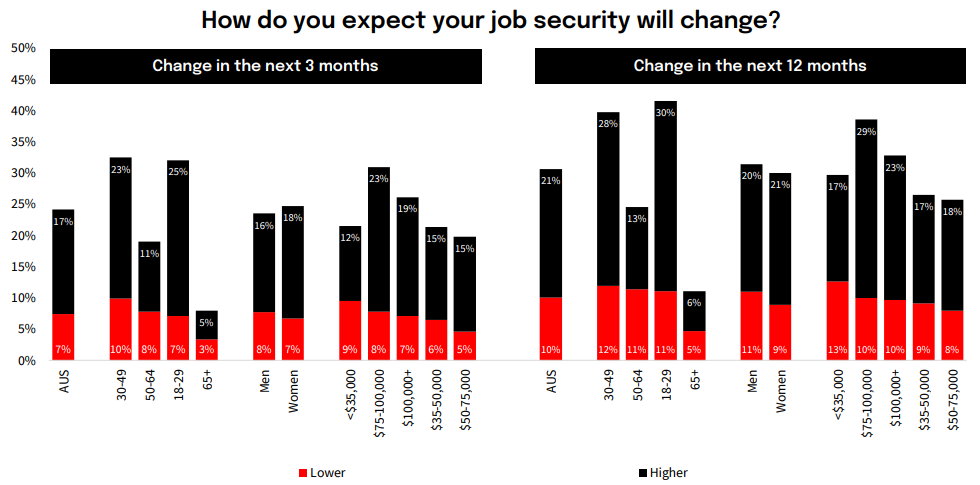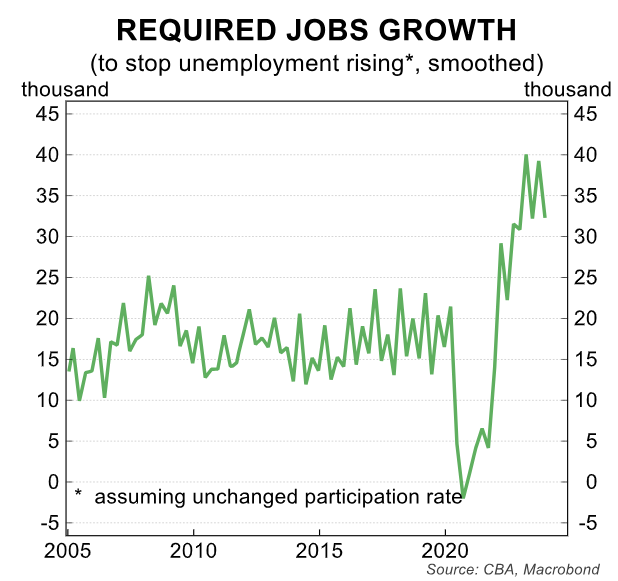The latest jobs data from SEEK shows that the number of job ads fell heavily in late 2023, while the number of applicants per job ad surged well above pre-pandemic levels:

The surge in applicants per job ad infers that Australia’s unemployment rate will lift materially in 2024:

Indeed, Deloitte recently noted that most “labour market indicators suggest a tipping point” and tipped Australia’s official unemployment rate to rise to 4.5% by June 2024, from 3.9% currently.
NAB’s latest Consumer Stress Index now sits at its highest level since the March 2020 quarter, with more Australians worried that they will lose their job at some point this year.
Overall, 7% expect job security to be worse in the next 3 months, but this increases to 10% in the next 12 months.
By age, the number expecting job security to be worse in the next 3 months was highest in the 30-49 group (10%) and lowest in the over 65 group (3%).
All age groups expect their job security to be lower in the next 12 months, particularly in the 18-29 (11% vs. 7% in 3 months) and 50-64 (11% vs. 8% in 3 months) age groups.

“Because when we talked to people about [their biggest worry] about their financial position, it is an inability to have a buffer for an emergency”, NAB’s head of behavioural economics, Dean Pearson said.
“Now that buffer is a concern but it’s a real concern if you don’t have a job, and that sentiment is increasingly coming through in all of our surveys”.
The most important chart for the labour market is the next one from CBA, which shows that because of historically high immigration, Australia needs to create around 35,000 jobs per month to keep the unemployment rate stable:

However, with households cutting back on expenditure and demand weak across the economy, Australia’s jobs growth is unlikely to be sufficient, meaning the unemployment rate will very likely rise in 2024 and wage growth will slow.

